If you’re a parent living in Bitterne, Southampton, and your child has shown even a tiny spark of interest in chess, you’re in the right place. Or maybe you’re someone who’s always wanted to play chess, and now you’re ready to give it a real try. Either way, finding the right place to learn chess is very important.
Online Chess Training
The New Way to Learn Chess
Once upon a time, learning chess meant walking into a local community hall, sitting on a cold chair, and playing with whoever showed up. The teacher might have been good. Or not. There was no clear plan. No roadmap. You just played and hoped to learn something.
That was the old way.
Today, things have changed. Online chess training has opened a whole new world. And it’s not just about convenience. It’s about results.
You can now sit at home, open your laptop or tablet, and have a real coach — a certified one — guide you step by step. You get to join live classes, ask questions, get feedback, and grow like never before. It’s personal, it’s structured, and most of all, it works.
Now, let’s take a closer look at what chess training looks like in Bitterne — and why online is the smarter path.
Landscape of Chess Training in Bitterne and Why Online Chess Training is the Right Choice
Bitterne is a cozy neighborhood in Southampton. Families here care about their kids’ growth — not just in school, but outside too. Activities like football, music, and yes, chess, are all popular.
But here’s the truth: Bitterne doesn’t have many full-time chess academies. You might find a coach who comes to the library once a week. Maybe there’s a group that meets monthly. But structured, reliable chess training? It’s rare.
And when something is rare, it’s also risky.
Offline classes often cancel. Coaches change. Students don’t always get the attention they need. There’s no system. No plan. Just scattered learning.
That’s why more families in Bitterne are now choosing online chess academies — especially ones that offer a full curriculum, live coaching, and feedback. It’s like having a private chess school right in your home.
And in this space, one name truly shines.
How Global School of Chess is The Best Choice When It Comes to Chess Training in Bitterne
Imagine a place where your child learns from real, certified chess coaches. Where every class has a goal. Where each lesson builds on the last. Where your child is not just learning how to move knights and rooks, but also how to think clearly, stay calm, and make smart decisions.
That’s what Global School of Chess offers.
We are not just another online chess class. We are a full online chess academy trusted by families in over nine countries. From the U.S. to the UK, from India to Australia — kids are learning and growing with us every single week.
Here’s what makes us different:
We follow a structured curriculum. Every student starts with a free trial class where we see exactly where they are. Then we place them in the right group. Not too easy. Not too hard. Just right for growth.
Our coaches are FIDE-certified. That means they are approved by the world’s top chess body. They know what they’re doing — and they know how to teach.
We offer live, interactive classes. Your child gets to ask questions, get answers, and grow fast. No sitting quietly and watching videos. This is real learning.
We host online tournaments twice a month. Your child gets to play, compete, and feel the thrill of winning — and learn from their losses too.
And most of all, we focus on life skills. Chess helps build focus, patience, and confidence. That’s what we want for every student. And that’s why so many parents trust us.
In Bitterne, where chess resources are limited, this is a golden opportunity.
You don’t need to wait for a local coach. You don’t need to travel. You can start from home — today.
Just try our free trial class. You’ll see the difference in the very first session.
Offline Chess Training
Offline chess training has been around for decades. In local libraries, community centers, and schools across the UK — including areas like Bitterne — chess clubs gather weekly to play and practice. It’s where many of today’s top players first learned the game.
But what does offline training actually look like in 2025? More importantly, how can families and academies use this model wisely without falling into the traps of the past?
Let’s take a closer look.
The Charm of Face-to-Face Learning
There’s something wonderful about sitting across from an opponent and hearing the click of a chess clock. Kids learn how to shake hands, manage nerves, and make eye contact — all small but powerful skills.
Offline training also builds community. Students form friendships. Parents get to connect. Coaches become local mentors. These soft benefits should not be underestimated.
However, while the atmosphere might be warm, the learning environment can still fall short if not carefully designed.
What Most Offline Programs Lack (And How to Fix It)
Many offline classes are informal, unstructured, and focused only on playing games. This “just play and learn” approach might work for hobbyists, but it doesn’t work for learners who want steady progress.
If you’re running or considering enrolling in an offline chess class, here’s what to watch out for — and how to turn weaknesses into strengths.
1. No Curriculum = No Clarity
Most offline coaches rely on intuition. They teach what they feel is needed. But this leads to gaps in learning.
What to do:
Build or request a visible curriculum. Even a simple roadmap of 12 weeks showing topics like “basic endgames,” “forks & pins,” or “checkmate patterns” can give both kids and parents direction.
2. One Coach, Many Levels
Offline groups often have kids ranging from total beginners to intermediate players. A single coach can’t teach effectively when everyone’s at a different level.
What to do:
Split classes into tiers. Offer separate beginner and advanced sessions. If that’s not possible, use rotating stations: one for tactics, one for play, one for coach-guided puzzles.
3. Missed Sessions = Missed Learning
Life happens. Kids get sick. Parents get busy. If a student misses one offline class, there’s rarely a way to catch up.
What to do:
Introduce flexible support — like a WhatsApp group for homework tasks or optional review worksheets. Better yet, record short recap videos and send them to absent students.
4. Limited Feedback
In most offline groups, coaches walk around and glance at games. But that doesn’t mean students understand what they did right or wrong.
What to do:
End every class with a 5-minute review of 1–2 key positions from real student games. Talk it out as a group. This builds shared learning and insight.
Opportunities for Smart Businesses
If you’re a chess academy operating offline, there’s massive room for growth — but it won’t come from simply doing more of the same.
Here’s how to evolve:
Offer Micro-Camps
Host 2-day weekend intensives focused on one topic (e.g., “How to Win in the Endgame”). Keep it focused. Include puzzles, game analysis, and a mini tournament.
Partner With Schools
Local primary and secondary schools often want after-school chess — but they don’t know how to run it. Offer your coaching services. Provide structure, not just supervision.
Blend With Tech
Use online tools like Lichess or ChessKid to assign practice homework. Students play puzzles at home, and you review their progress in the next session.
Create a Loyalty Program
Reward regular attendance with badges, medals, or progression certificates. Kids love goals. Parents love knowing their child is progressing.
Build Parent Engagement
Once a month, run a “Parent & Child” chess challenge evening. Teach parents simple strategies, let them play with their child, and show off what students have learned.
Drawbacks of Offline Chess Training
When people think of chess classes, they often imagine a quiet room with wooden boards and students hunched over, deep in thought. That sounds nice — in theory. But for today’s young learners and busy families, this picture is no longer ideal. And for businesses or academies that rely solely on offline models, this can be a huge blind spot.
Here’s why offline chess training is not just outdated — it may be limiting your child’s full potential and your academy’s future.
Hidden Gaps in Learning
Offline chess training often works on a “show up and play” model. A coach gives a short talk, then students start games. The issue? Learning becomes reactive, not proactive. Most students only learn from mistakes — but without tools like video analysis or move-tracking, those lessons are often lost. Mistakes are repeated. Growth stalls.
If your child is serious about improving, they need more than just playing time. They need review sessions, guided corrections, and real-time insights — all of which offline sessions struggle to offer consistently.
Limited Learning Styles = Limited Results
Every child learns differently. Some are visual learners. Others respond to storytelling, movement, or repetition. Offline classes usually follow one teaching style, leaving many kids behind. In contrast, online platforms can mix videos, puzzles, animations, and live feedback — adapting to each child’s preferred style.
If your child is not engaging or excited in offline sessions, it’s not because they don’t love chess. It’s because the format doesn’t fit their learning brain.
Scalability Issues for Coaches
For chess coaches running offline academies, there’s only so much you can do in a 2-hour weekly class. You’re tied to one location. You’re limited by space, travel, and scheduling. You can’t reach more students unless you scale physically — and that means higher rent, more logistics, and often more stress.
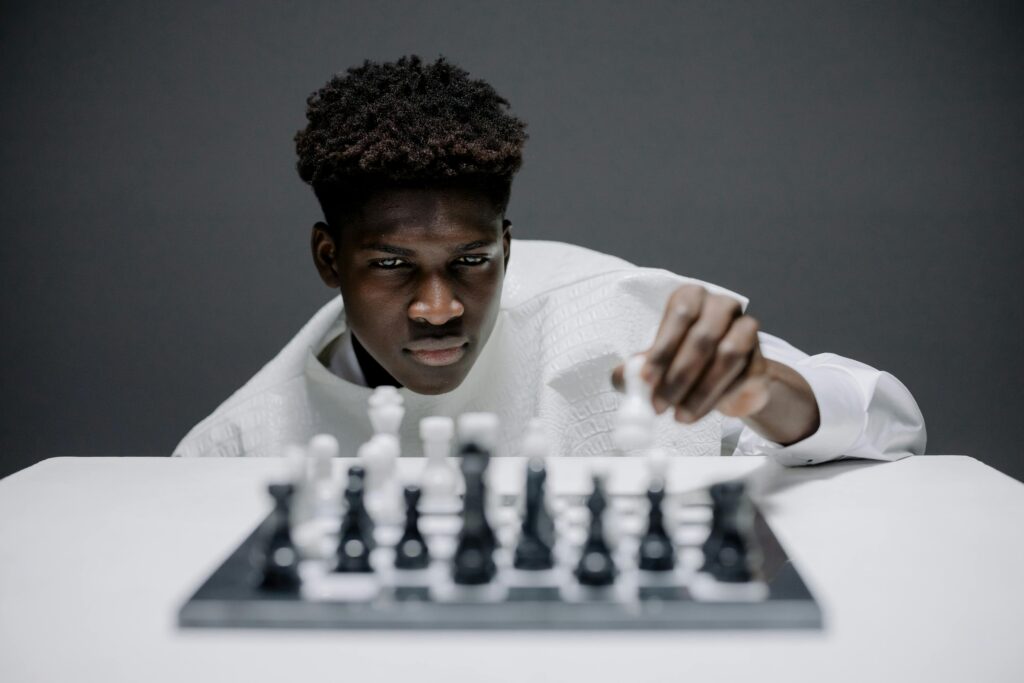
Online programs, however, let coaches teach dozens of students across cities and time zones without needing to leave their home. It’s smarter, leaner, and far more scalable.
Lack of Data-Driven Growth
This is big. Offline coaching rarely collects or tracks data. Coaches may have a sense of who’s improving, but they don’t always know how fast or in which areas. That’s a problem.
Online chess schools like Global School of Chess can track progress in real time — across tactics, endgames, decision-making, time usage, and more. This means students get detailed reports. Coaches adjust strategies. Parents get updates. Everyone is aligned.
Offline programs? They rely on memory, impressions, and vague observations.
The Disconnected Parent Experience
Many parents want to be involved in their child’s learning — but not in a way that feels overwhelming. Offline training often leaves parents in the dark. They drop off their kids and wait outside, never really knowing what happened in class.
With online programs, parents can easily get updates via email or app. Some even get video recordings of lessons or short feedback clips. This builds trust, transparency, and pride in the learning journey.
Best Chess Academies in Bitterne
Now that we’ve looked at how chess is taught offline and online, let’s talk about the top five chess academies available to people in Bitterne.
These include a mix of local and online options — but only one offers a full program built for real results.
Let’s begin with the one that’s setting a whole new standard.
Global School of Chess
The #1 choice for families who want more than just a casual chess class.
At Global School of Chess, we teach chess in a way that is simple, smart, and effective. Kids love our lessons because they are fun and full of learning. Parents love us because they can see their child getting better — not just at chess, but at thinking clearly and staying focused too.
We don’t teach by chance. We follow a path.
Each child starts with a free trial class. We talk to them. We play with them. We see what they know. Then we place them in the right group. Not too easy. Not too hard.
From there, it’s step by step. Each week builds on the last. Lessons cover openings, tactics, strategy, and endgames. But more than that, they teach your child how to think before acting. How to plan. How to stay calm under pressure.
This is not just about winning games. This is about building life skills.
Our coaches are the real deal. They are certified by FIDE. That means they’re trained, tested, and trusted. But they’re not just smart. They’re kind, patient, and great with kids.
Our classes are live and interactive. That means your child can ask questions, solve puzzles, and get instant feedback.
We also have private coaching for those who want to go even deeper. And our online tournaments help kids test what they’ve learned in a safe and exciting way.
And here’s the best part — you don’t need to leave your home.
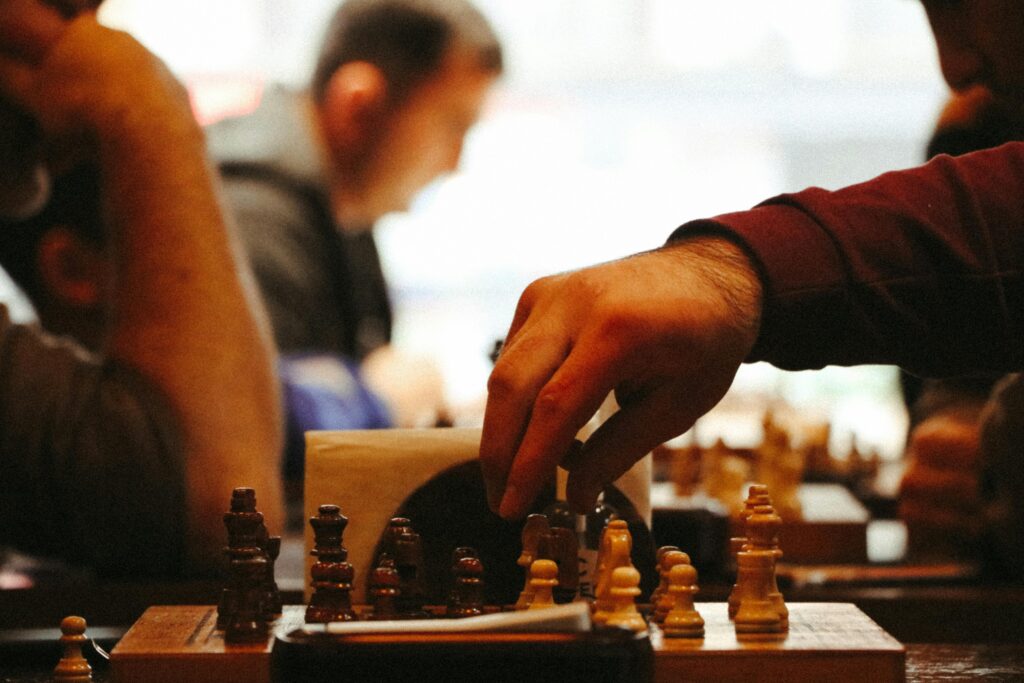
You can learn from your living room. Or your kitchen. Or wherever your child feels most comfortable.
That’s the power of online learning done right.
We’ve helped hundreds of students from around the world. And we’re ready to help your child too.
The best way to start? Sign up for a free trial class. No cost. No pressure. Just one great class to see what we’re all about.
Your child will thank you for it.
Southampton Chess Club
Southampton Chess Club is a well-established club that has been around since 1883. They meet on Tuesday evenings from September to May at the St. Denys Community Centre in Southampton.
The club welcomes players of all abilities and offers both competitive and informal sessions. They also participate in local leagues and tournaments, providing opportunities for members to test their skills in a competitive environment.
While Southampton Chess Club offers a great community for chess enthusiasts, it primarily focuses on over-the-board play and may not provide the structured, curriculum-based learning that some students seek.
Royal Chess Coaching Academy
The Royal Chess Coaching Academy offers online chess lessons to students in Southampton and across the UK. They provide private one-on-one classes with experienced tutors, including Grandmasters and International Masters.
Their courses cater to various skill levels, from beginners to advanced players, and focus on personalized lesson plans to suit individual needs.
While the Royal Chess Coaching Academy offers high-level instruction, their emphasis is on private lessons, which may not include the community aspect or regular group interactions that some learners find beneficial.
Strategic Chess Academy
Strategic Chess Academy provides international coaching with FIDE-rated coaches. They aim to develop students’ strategic thinking and have experience in training players who have become champions in various countries.
Although Strategic Chess Academy offers quality coaching, their focus is on international training, which might not provide the localized support or community engagement that some students in Bitterne may prefer.
Hampshire Junior Chess Association
The Hampshire Junior Chess Association organizes events and activities aimed at promoting chess among young players in the Hampshire area. They offer opportunities for juniors to participate in tournaments and improve their skills through competitive play.
While the association provides valuable tournament experience, it may not offer regular coaching sessions or a structured curriculum for ongoing skill development.
Why Online Chess Training is The Future
Let’s take a step back and look at how kids learn today. Most things they learn — from school assignments to music lessons — now have an online option. And it’s not just a trend. It’s a better way to learn when done right.
The same is true for chess.
Online chess training isn’t just about sitting at a computer. It’s about using technology to unlock smarter learning.
Kids get to learn from expert coaches from anywhere in the world. They don’t have to rely on who’s nearby. They can study with the best — even if the best live thousands of miles away.

They also get to learn on a schedule that works for them. No rushing through traffic. No missing classes due to bad weather. Just simple, reliable learning from home.
And let’s talk about comfort. Kids learn better when they feel safe, happy, and focused. Learning from home gives them that comfort. They’re not distracted by noise or crowding. They can listen closely, ask questions, and stay engaged.
Online training also means better tools. From live video classes to smart chess boards and puzzles, students get more ways to learn and grow. They can even review their games afterward with one click.
This is the future of learning. And it’s already here.
But of all the options out there, only one stands out as the leader in online chess education.
How Global School of Chess Leads the Online Chess Training Landscape
At Global School of Chess, we’re not just keeping up with the future of learning — we’re helping shape it. While other chess academies are just starting to explore online options, we’ve already built a full ecosystem that combines expert coaching, modern tools, and a global community of learners.
We understand one truth that many others miss: great online learning is not about moving in-person classes to Zoom. It’s about designing a whole new experience that brings out the best in every student — no matter where they live.
Let’s explore how we do that — and how other educators can learn from our model.
Structured Curriculum, Tailored Pathways
Our success starts with clarity. Every student at Global School of Chess begins with a free trial class where we assess their level and learning style. From there, we place them into the right tier — not just by age, but by skill and confidence.
We’ve built a step-by-step curriculum that spans from basic rules to advanced strategy. Each lesson is designed with a purpose. Each class builds on the last. Students don’t just learn what to do, they learn why it works.
Business takeaway:
If you’re running an online program (in chess or any field), build layered learning paths. Avoid one-size-fits-all teaching. Let students level up. Show them a roadmap. Growth should feel like a journey, not a guessing game.
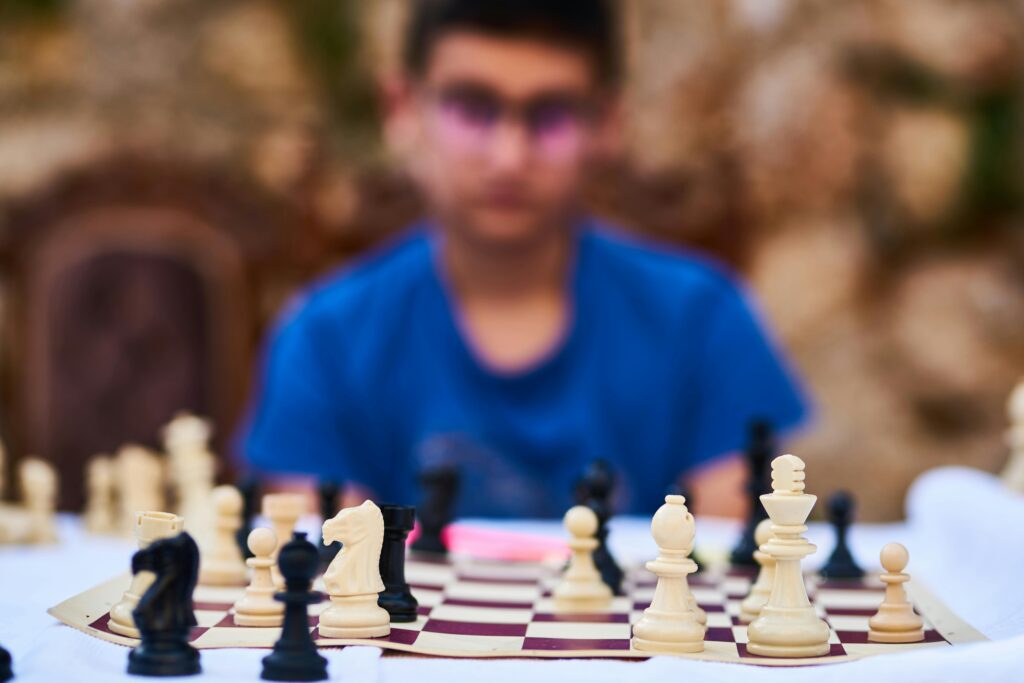
Personalized Feedback and Coaching
We don’t just teach. We coach.
Every student at GSChess gets regular feedback — from their live games, puzzle performance, tournament results, and even behavior in class. Coaches take time to speak directly to each child, praising what they did right and gently correcting what needs work.
That personal attention is what builds trust. And trust builds long-term growth.
Business takeaway:
Feedback is your secret weapon. Use tools to track progress and create personalized messages. Even a short weekly progress note builds connection and value in ways a lecture never could.
Community That Stretches Across Continents
One of our proudest achievements is our global classroom. Students from the UK, the U.S., Canada, India, and beyond join our lessons each week. That diversity enriches every discussion. Kids don’t just learn chess. They learn to communicate with peers from around the world.
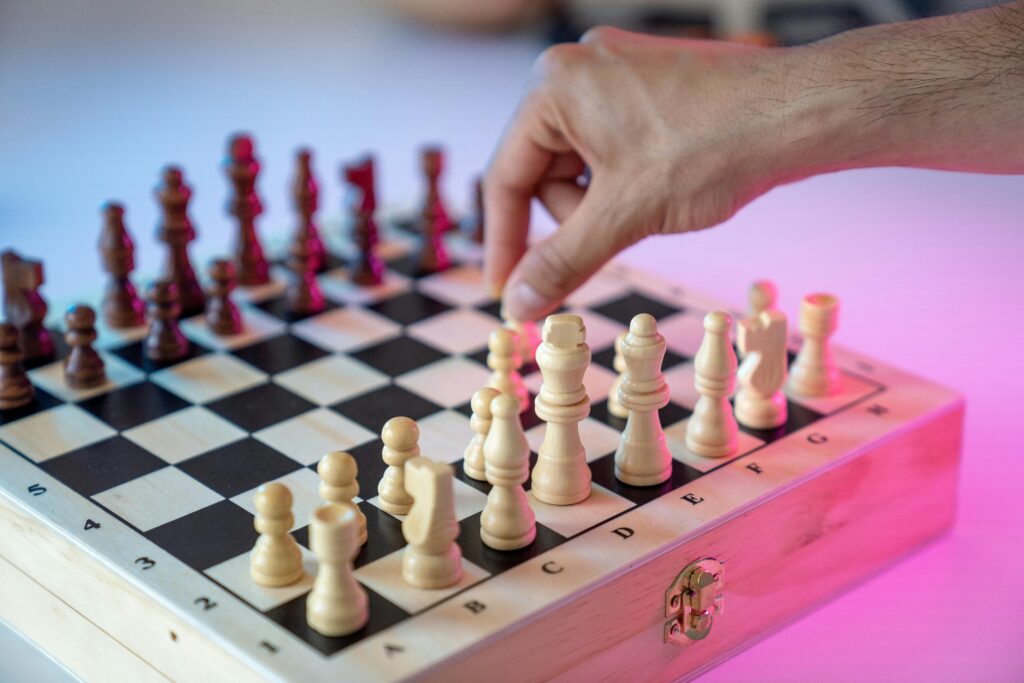
This teaches empathy. It builds perspective. It shows that the world is much bigger than their hometown — and that they can succeed anywhere.
Business takeaway:
Think global from day one. Even if you serve a local market, start creating opportunities for your learners to connect beyond borders. Use guest sessions, collaborative tournaments, or exchange programs to broaden their horizon.
Gamified Learning Tools and Challenges
Chess is serious — but learning it shouldn’t feel boring.
We use gamified practice tools, weekly challenge boards, achievement badges, and mini competitions to keep students excited. When kids log in to class, they’re not dragging their feet. They’re eager. Curious. Engaged.
It’s not just about winning. It’s about trying new things, solving smart problems, and having fun along the way.
Business takeaway:
If your online model feels dry, add joy. Use points, levels, challenges, or visual trackers. Reward small wins. Make learning feel like play — without losing the depth.
Family Involvement Without Overwhelm
We know that parents are key to a child’s learning journey — but we also know they’re busy.
So, we make it easy. Parents receive simple class updates, milestone alerts, and tips on how to support their child at home. We also offer special parent-child game nights and webinars on how chess builds life skills.
It’s not just about teaching the child. It’s about supporting the whole family.
Business takeaway:
Build parent communication systems that are low-effort but high-impact. A short email with “What Your Child Learned Today” or “One Question to Ask Your Child After Class” can build loyalty and improve learning outcomes.
Always Evolving with Technology
e don’t settle. Every quarter, we test new tools — AI-powered puzzle tracking, smarter tournament pairings, interactive whiteboards, mobile-friendly dashboards. If it helps our students grow faster or feel more connected, we find a way to use it.
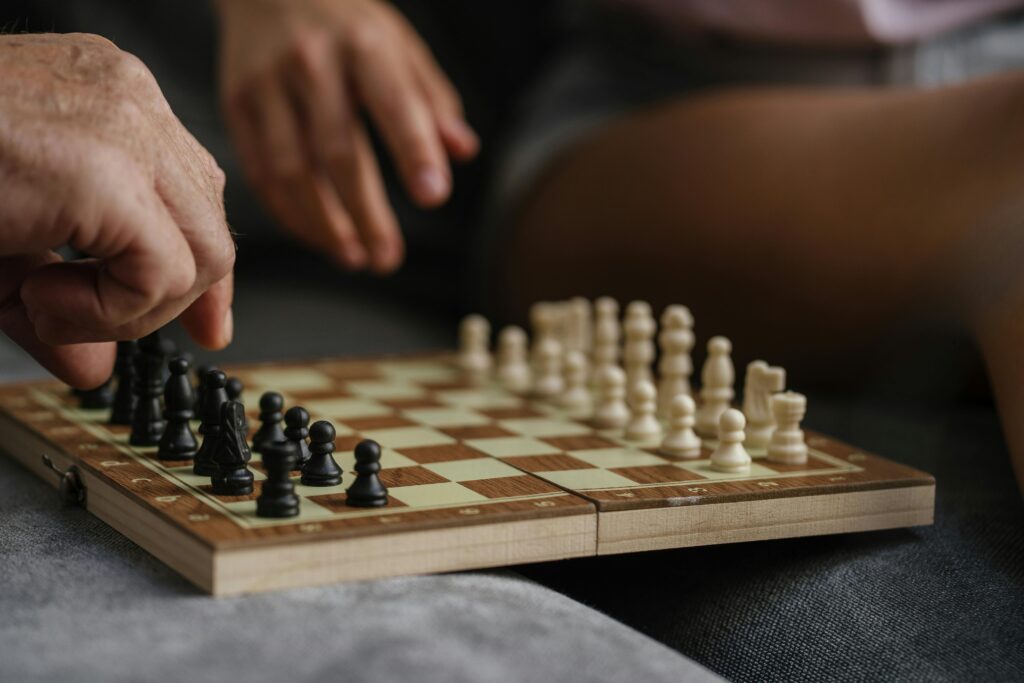
Business takeaway:
Stay curious. Run pilots. Invite student and parent feedback. Technology moves fast — and the best online academies will move with it, not behind it.
Wrapping It Up
Finding the right chess coaching academy can feel like a big decision — especially when you want more than just games. You want growth. You want structure. You want your child to feel supported, challenged, and proud of what they’re learning.

